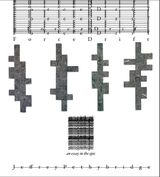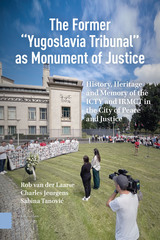3 books about Crabtree, John

Fractured Politics
Peruvian Democracy Past and Present
Edited by John Crabtree
University of London Press, 2011
Latin American opinion surveys consistently point to Peruvian citizens' deep distrust of their elected rulers and democratic institutions. The 2011 presidential and legislative elections in Peru, along with the regional and municipal polls of the previous year,showed once again the degree of political fragmentation in contemporary Peru andthe weakness of its party system. Fractured Politics examines the history of political exclusion in Peru, the weaknessof representative institutions, and the persistence of localized violent protest. It also evaluates the contribution of institutional reforms in bridging the gap between state and society, including Peru's Law on Political Parties, administrative decentralization, and the experience of the Defensor, or ombudsman's office. The chapters, by leading scholars of Peruvian politics, emerge from a conference, held in 2009 in Saint Antony's College Oxford. Julio Cotler, from the Instituto de Estudios Peruanos (IEP), was the keynote speaker.
[more]

Fujimori's Peru
The Political Economy
Edited by John Crabtree and Jim Thomas
University of London Press, 1998
This book provides an evaluation of Peruvian politics and economics in the 1990s, on the evidence available up until the end of 1997. The purpose is twofold: to detect continuities and discontinuities between the Fujimori period and earlier ones, and to offer an answer--however tentative--to the question of whether the Fujimori government has laid the basis for greater future stability. The answers to these questions are mixed. There appear to be more continuities than many suppose, even though 1990 in many ways was a 'turning point.' And while the Fujimori government helped provide a more stable context than the one it inherited, it is by no means clear that the changes it has brought about will prove sustainable over the longer run. The political model looks particularly brittle. The contributors are Luis Abugatt?s, Elena Alvarez, Javier de Bela.nde, John Crabtree, Carlos Iv?n Degregori, Francisco Durand, Adolfo Figueroa, Ra.l Hopkins, Javier Igu??iz, Drago Kisic, Enrique Obando, Martin Tanaka, Jim Thomas, and Rosemary Thorp. John Crabtree is a researcher at Oxford Analytica and a visiting research fellow at the Institute of Latin American Studies, University of London.
[more]

Making Institutions Work in Peru
Democracy, Development and Inequality Since 1980
Edited by John Crabtree
University of London Press, 2006
The 2006 Peruvian elections are an appropriate moment to reflect on Alejandro Toledo's term as president and on the broader agenda for building a more inclusive and democratic government. In a country of extreme social inequality, such an aspiration represents an enormous challenge. The sudden collapse of the which Fujimori regime --which had dominated Peru for the 1990s --and Toledo's election victory in 2001 seemed to provide an opportunity for institutional reform and rebuilding. The impetus proved short-lived, as the new president's popularity sank to unprecedented levels and public support for Peru's democratic institutions continued to hemorrhage. This book suggests that the challenges of institutional development run very deep and are not peculiar to any one government. Institutional change in Peru is part of a much wider process of transformation from an oligarchic society.
Contributors include Paulo Drino (University of Manchester), Cynthia Sanborn (Centro de Investigaciones, Universidad del Pacifico, Lima), Carlos Monge (Participacion Ciudadana, Lima), Fernando Rospigliosi (Instituto de Estudios Peruanos, Lima), Pedro Franck (Departamento de Economia, Universidad Catolica, Lima), Fernando Eguren (Centro Peruano de Ciencias Sociales, Lima), Rosemary Thorp (Queen Elizabeth House/St Antony's College, Oxford), Eduardo Dargent (University of Texas,Austin), Coletta Youngers (Washington Office on Latin America,Washington D.C.), Francisco Durand (University of Texas, San Antonio), Jose Tavara (Departamento de Economia, Universidad Catolica, Lima, and OSIPTEL), and Richard Webb (Instituto Cuanto and Central Bank of Peru).
Contributors include Paulo Drino (University of Manchester), Cynthia Sanborn (Centro de Investigaciones, Universidad del Pacifico, Lima), Carlos Monge (Participacion Ciudadana, Lima), Fernando Rospigliosi (Instituto de Estudios Peruanos, Lima), Pedro Franck (Departamento de Economia, Universidad Catolica, Lima), Fernando Eguren (Centro Peruano de Ciencias Sociales, Lima), Rosemary Thorp (Queen Elizabeth House/St Antony's College, Oxford), Eduardo Dargent (University of Texas,Austin), Coletta Youngers (Washington Office on Latin America,Washington D.C.), Francisco Durand (University of Texas, San Antonio), Jose Tavara (Departamento de Economia, Universidad Catolica, Lima, and OSIPTEL), and Richard Webb (Instituto Cuanto and Central Bank of Peru).
[more]
READERS
Browse our collection.
PUBLISHERS
See BiblioVault's publisher services.
STUDENT SERVICES
Files for college accessibility offices.
UChicago Accessibility Resources
home | accessibility | search | about | contact us
BiblioVault ® 2001 - 2025
The University of Chicago Press









